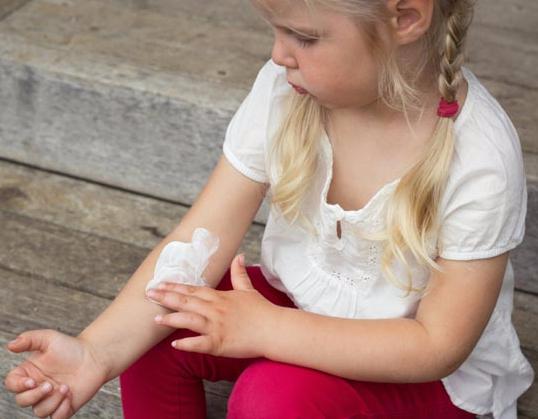 |
 |
 |
 |
 |
 |
 |
 |
 |
 |
|
 |
 |
 |
 |
 |
 |
 |
 |
 |
 |
 |
 |
 |
 |
 |
 |
 |
 |
 |
 |
|
We hope everyone had a wonderful holiday weekend with family and friends! We remind you that The Pediatric Center is open 356 days a year, including holidays. We always welcome walk-in appointments during weekday office hours to both existing patients and new patients. On the weekends and during the holidays, we are open for
sick and emergency appointments for existing patients. Simply call when the phones open at 8:45 am for an appointment.
In this month's newsletter, we discuss an important and prevalent topic - bullying - and how to address it. In addition, we offer an article with dry skin solutions as the winter cold and indoor heating tends to cause dry skin and skin issues. In recognition of diabetes awareness month, we provide information on type 2 diabetes and how it can be controlled. And finally, we present our new website!
Our goal is to further develop our relationship with our patients and create an open forum. We welcome your comments and ideas. If you would like to see something included in this newsletter, please email us at
[email protected]
with ideas only, please no medical requests.
As always, we welcome you to share your experience with our practitioners with an online review.
Sincerely,
The Pediatric Center Staff
|
|
Author: Dr. Emily Shih

Bullying is a serious problem that deserves attention.
There are so many children who have bullied or know others who have been victims of bullying. 25% of children admit to having been bullied. 43% of students have been victims of cyberbullying, when bullying occurs
over digital devices like cell phones, computers, and tablets.
Bullying can occur in many forms and include unwanted, aggressive behavior. Attacks include verbal or physical threats, exclusion, or marginalization.
Children being bullied are affected in many ways. According to the State Government Affairs, more than 160,000 students stay home from school each day from fear of being bullied. Once in school, it may be difficult to concentrate, which can have an affect on grades and even health issues. Headaches, stomach aches, depression, and anxiety are just a few examples of subtle physical manifestations of bullying.
How to prevent and stand up against bullying
One of the most important defenses against bullying is to reassure our children they are valuable. Being bullied is not his/her fault. It is important they know that they are not alone. We can build up their confidence by reminding them of their strengths and positive attributes.
Anytime a person feels physically threatened or in danger, they should immediately seek help from an adult.
In non-emergent situations, we can empower the student. Bullies feel powerful when they can make someone else feel vulnerable. They lose their power when someone seems indifferent.
Try to encourage the child to avoid the bully. If that is not possible, have them try to ignore the bully and think about something else.
If a child is put in a situation they can not avoid or escape, they should be armed with some responses that show the bully they do not feel threatened. Some examples of responses to verbal bullying include:
- You're not as funny as you think you are.
- This is getting boring. Let me know when you are done.
- Wow, did you come up with that all by yourself?
- Go away.
Once a comeback line is said, the child should walk away and do not engage the bully.
Have the child try to stay with their friends. Bullies usually try to avoid groups. There is safety in numbers.
If the behavior persists or the student feels in danger, it should be brought to the attention of an adult, such as a parent, teacher, guidance counselor, or principal. Keep seeking help from others until the bullying is addressed and stopped.
Victims need to know that there are laws in New Jersey to protect them. The Anti-Bulling Bill of Rights Act protects victims of bullying on public school campuses.
New Jersey has been a leader in the establishment of a strong statutory, regulatory, policy and program framework to support the prevention, remediation and reporting of HIB (Harrassment, Intimidation, Bullying) in schools. New Jersey has also passed cyber harassment laws.
As a community we can model kind and accepting behavior to children. We can speak up and defend those who are being bullied. It's important for everyone to work together to keep our children happy and safe.
If you have any questions or concerns about bullying, or need help with resources, please call our office. It is best to address an issue sooner rather than later.
|
Babies and children can get dry skin just like adults do. In fact, because young skin is  more delicate, it's more susceptible to becoming dry. more delicate, it's more susceptible to becoming dry.
Cold, dry outdoor air and indoor heating can rob skin of its natural moisture in the winter. And if your child is prone to dry skin, he'll break out in dry patches in the summer as well, because the summer sun, air conditioning, salt water, and the chlorine in pool water can all be drying.
How to manage your child's dry skin
Cut back on bath time
Bathing dries a child's skin because it removes the skin's natural oils along with the dirt. But as long as you take a few precautions, even daily baths shouldn't be a problem, says Seth Orlow, director of pediatric dermatology at New York University School of Medicine.
Instead of a 30-minute bath, cut bath time down to about 10 minutes. Use warm water - not hot - and soap up sparingly. In fact, Orlow suggests using a fragrance-free, soap-free cleanser, which is much less harsh than regular soap.
Let your child have her playtime in the tub before you wash her, so she won't be sitting in soapy water and try not to leave the cleansing bar floating in the tub. Try to cut down on bubble baths - or at least limit them to special occasions.
While bath oils may seem like a good idea, they can make the tub dangerously slippery, and most of the oil slides down the drain anyway. Applying an emollient (skin moisturizer) after bathing is a better route.
Slather on the moisturizer.
Once you take your child out of the bath, quickly pat him dry with a towel, then apply natural moisturizer immediately. Applying the moisturizer within minutes of taking your child out of the tub will seal in the water that's still in his skin from the bath.
Thicker moisturizers hold the moisture in longer. Ointments are best at keeping moisture in the skin, but they can feel greasy. Just use small amounts and gently rub it into the skin. Creams rub in without leaving a greasy feel on the skin.
Consider moisturizing twice a day - once after bathing and once during the day. If your child doesn't have the patience for a midday slather, you might let him listen to a favorite song or watch a video while you apply the moisturizer. Or, if he's old enough, let him do it himself, if that makes the routine more agreeable.
Don't let salt or chlorine dry on her skin
Chlorine and salt water can both be very drying. After a swim in the pool or ocean, rinse off your child with tap water, and then apply moisturizer while her skin's still damp.
Run a humidifier
If the air in your home is dry, use a cool mist humidifier in your child's room.
Keep your child well hydrated
Dry skin lacks moisture. Offer your child plenty to drink year-round to replace the moisture that's evaporating from his skin.
Keep in mind that drinking a lot won't do anything if you don't moisturize as well. It's like pouring water into a bucket with a hole, says Orlow. Without moisturizer to hold in the water, your child's skin won't properly hydrate.
Protect your child from the elements
Make sure your child wears mittens or gloves in cold weather to keep her hands from becoming dry and chapped from the cold and the wind. No matter what the season, take steps to protect her from windburn and
sunburn.
Avoid drying or aggravating ingredients
Don't use powders or perfumes on your child's skin, and consider using unscented laundry products. Some
fabrics, such as wool, can be especially irritating to dry skin.
Could dry skin be a sign of some other kind of condition?
If your child has itchy red patches on her skin, it's possible she has
eczema, also known as atopic dermatitis. Sometimes even eczema will clear up with regular moisturizing, though, so you needn't rush to the doctor unless the patches don't get better or your child seems itchy or uncomfortable despite your efforts.
If you have concerns about your child's dry skin, please schedule a visit, especially if their skin doesn't improve with home treatments or you see any signs of infection, like a yellow discharge or swelling around a crack in his skin.
Article extracted from BabyCenter.com
|
| Diabetes - It Can Be Controlled |
In recognition of November as diabetes awareness month, following is information on diabetes and how it can be controlled.
There are two types of diabetes -  Type 1 and Type 2. Type 1 is known as a hereditary disease, while type 2 can be environmental. There's a growing type 2 diabetes problem in our youth that is actually controllable with steps you can take to eliminate diabetes and reduce the need for treatment and medicine. Type 1 and Type 2. Type 1 is known as a hereditary disease, while type 2 can be environmental. There's a growing type 2 diabetes problem in our youth that is actually controllable with steps you can take to eliminate diabetes and reduce the need for treatment and medicine.
According to the CDC, about one-third of American youth are overweight, a problem closely related to the increase in kids with type 2 diabetes, some as young as 10 years old.
Type 2 diabetes was typically thought as a disease that affects adults, often referred to as "adult on-set diabetes". The standard American diet and rise in processed foods has had an impact on the raising concern for diabetes becoming more prevalent in our youth.
People who are overweight-especially if they have excess belly fat-are more likely to have
insulin resistance
, kids included. Insulin resistance is a major risk factor for type 2 diabetes.
Insulin is a hormone made by the pancreas that acts like a key to let blood sugar into cells for use as energy, however cells can stop responding normally to insulin which causes the pancreas to make more insulin to try to get cells to respond and take in blood sugar.
As long as enough insulin is produced, blood sugar levels remain normal. This can go on for several years, but eventually the pancreas can't keep up. Blood sugar starts to rise, first after meals and then all the time. Now the stage is set for type 2 diabetes.
Key Ways To Avoid Type 2 Diabtes
- Staying active helps the body better utilize insulin, decreases insulin resistance, helps control blood pressure and boosts mental health.
- Keep weight in normal range.
- Most children are in their early teens when diagnosed with type 2 diabetes. Girls are typically more prone to type 2 diabetes, as puberty makes it harder for the body to use insulin. Keeping on eye on eating and behavioral patterns at this age are important.
Risk Factors Associated With Type 2 Diabetes
- Family history - having a family member with type 2 diabetes can increase your risk - it's important to know your family history.
- Babies born with gestational diabetes while mom is pregnant.
- Being African American, Hispanic/Latino, Native American/Alaska Native, Asian American, or Pacific Islander.
- Having one or more conditions related to insulin resistance.
If your child is
overweight and has any two of the risk factors listed above, talk to your doctor about getting his or her blood sugar tested. Testing typically begins at 10 years old or when puberty starts, whichever is first, and is repeated every 3 years.
Ways To Limit Overeating
- Limit TV time - kids eat more when they were watching TV than when doing other activities, even sedentary (not physically active) ones.
- Encourage your kids to reach for fruit and veggies as snacks.
- Drink more water and fewer sugary drinks.
- Make favorite foods healthier.
- Family effort - get kids involved in making healthier meals and food shopping.
- Eat slowly-it takes at least 20 minutes to start feeling full.
- Eat at the dinner table only and have meals together as a family as often as possible.
- Shop on a full stomach so you're not tempted to buy unhealthy food.
- Teach your kids to read food labels to understand which foods are healthiest.
- Don't put serving dishes on the table or insist kids clean their plates.
- Serve small portions; let kids ask for seconds.
- Reward kids with praise instead of food.
How To Get More Physical
- Aim for your child to get 60 minutes of physical activity a day, broken into several 10-15 minute sessions or all at once.
- Start an exercise program slow and build up.
- Take parent and kid fitness classes together - ask your kids what activities they like the best.
- Make physical activity more fun; try new things like outdoor outings (hiking, biking, walking).
- Encourage kids to join a sports team.
- Have a "fit kit" available-a jump rope, hand weights, resistance bands.
- Limit screen time.
- Increase house chores like house-vacuuming, raking leaves, gardening; turn chores into games, like racing to see how fast you can clean the house.
Young kids and teens are still growing. If they are overweight at a young age, the goal is to slow down weight gain while allowing normal growth and development. Before you put them on a weight loss diet, talk to your doctor.
Source: CDC (Center for Disease Control).
|
| Announcing Our New Website |
You may have noticed a new look to our website! We are excited to announce a new, more user-friendly design and layout. Stay tuned as we continue to develop the site and make improvements.
We invite you to take a look and browse through the different topics. We always welcome patient feedback.
|
| On-Site Lactation Support Center |

The Pediatric Center's on-site Lactation Support Center led by our own Director of Lactation Support, Clare Cardo McKegney, DNP, APN, CPNP, is here to support you in breastfeeding your child. Dr. McKegney is a board certified pediatric nurse practitioner and certified breastfeeding counselor with over 18 years of advanced practice in pediatrics.
Our modern and private on-site lactation suite provides a warm and relaxed environment for the mother and infant to enjoy a positive breastfeeding experience.
To schedule your lactation consultation, attend our free prenatal class or make an appointment please call us at 908-508-0400.
|

The Pediatric Center's patient portal provides personal access
to your family's
medical records.
You can access information such as immunization records, visit summaries, request appointments, view dates for upcoming appointments and pay your bill.
|
| Do You Need A Pediatric Specialist? |
If you are in search of a pediatric specialist, please know we are here to guide you.
We have a wide network of doctors we can refer to ensure you are in good hands.
We specialize in developmental & behavioral health and focus on positive parenting practices. We can offer guidance on depression, eating disorders, developmental concerns and many other issues.
You are not alone.
Please call to make an appointment to meet with one of our physicians:
908-508-0400.
|
| The Pediatric Center Online Bill Pay |
|
Online Bill Payment
The Pediatric Center offers the ease and convenience of online bill
 payment.
Payments Over The Phone
If you prefer, you can still make a payment over the phone by calling The Pediatric Center's billing department, HealthCare Billing, Inc:
Toll Free: 877-852-9092 or
Local: 908-237-9092
|
| Did you know our website includes a Vaccine Education Center where you can find the immunization schedule for your child? Reminder - we are offering the new meningitis vaccine Trumenba in our office. Insurance companies have started to cover this vaccine. It is recommended it be administered to all students starting college as part of their pre-college physical. View all the details here. |
Your feedback is very important to us! We would love to hear about your positive experience with our doctors and nurse practitioners.
Did you know you can write and post a review right on our website? Click here.
You can use this page to provide feedback, kudos, or just share thoughts.
Thank you for your kind words!
|
 |
|
Free Prenatal Class
We offer a free prenatal class on the 3rd Thursday of every month with our own
Dr. McKegney!
|
|
|
|
|
It's A Partnership
Resources for breastfeeding, immunization schedules, what to do if your child is sick, online references & much more!
Click here.
|
|
|
|
|
|
Read Our Blog!
Check out our blog to read about news and current events. Topics are relevant to our practice and patients.
Click here.
|
|
|
|
|
|
 |
Keep up to date with pertinent news information and important announcements  on Facebook including time sensitive topics and office closings, etc. on Facebook including time sensitive topics and office closings, etc.
Simply like us by clicking on the icon to the right!
Announcements will also be posted on the home page of our website under "What's New".
|
The Pediatric Center
556 Central Avenue, New Providence, NJ 07974
908-508-0400
www.PedCenter.com
|
|
|
|
 |
|
 |
|
 |
 |
 |
 |
 |
 |
 |
 |
 |
|
 |
|